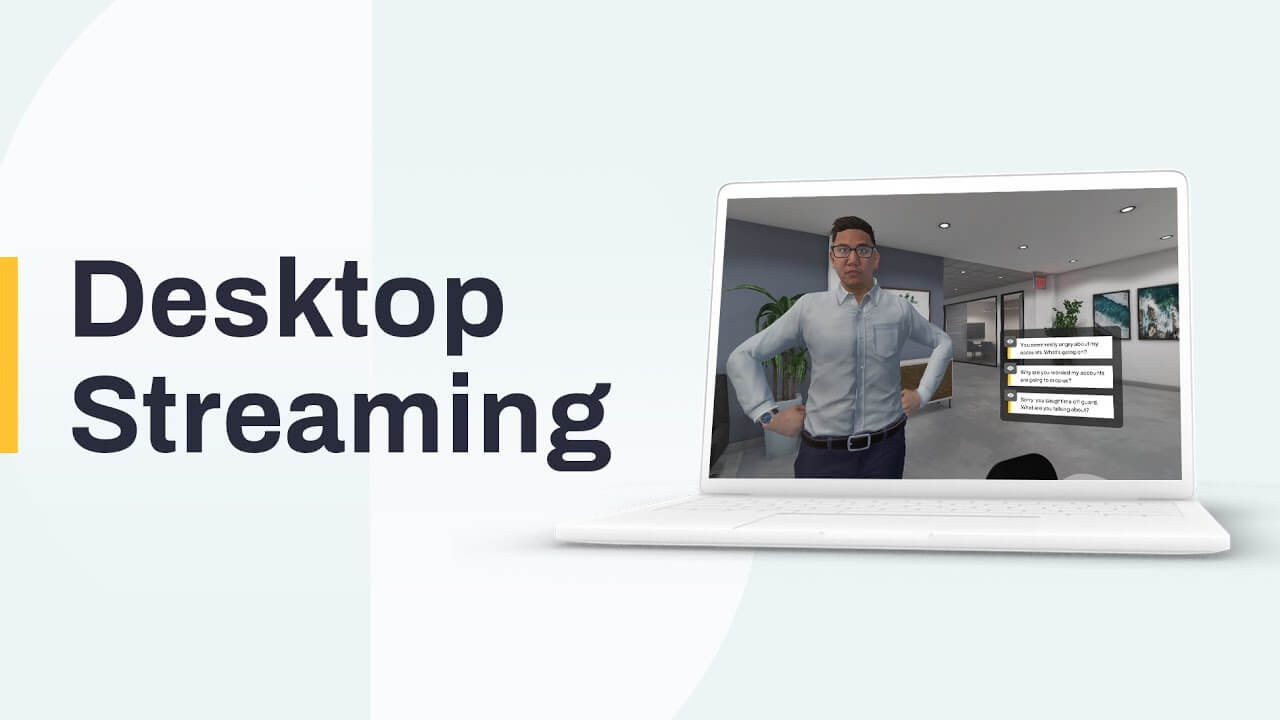Training and upgrading skills and abilities is one of the key requirements for people who want to stay successful and find new employment opportunities. The COVID-19 crisis has wiped millions of jobs, leading to an unemployment rate of 14.8% in April 2020. In order to give employees the chance to learn new skills and train for new jobs, Talespin has developed a VR soft skills training platform. Now, the platform features added content, as well as desktop streaming capacity.
Why a VR Soft Skills Training Platform?
There is a saying that, who you know is just as important as what you know in the employment world. In other words, employees need to be pros at networking and communicating, just as they are good at their job. Also, employees themselves are aware of the need to make a career change. According to a Pew Research survey conducted in 2021, 66% of unemployed respondents said that they are considering changing their occupation.
In this context, they need to learn new skills. This is where Talespin, a spatial computing company based in Los Angeles, CA, comes in. The company specializes in developing knowledge transfer solutions. Its latest product is a VR soft skills training platform. Its goal is to help users learn how to work in a team, communicate effectively, give and accept feedback.
Latest Additions to the Platform: Bias Recognition and Self-Awareness Content
The VR soft skills training platform, powered by Talespin’s CoPilot virtual human training technology, is the result of the collaboration between Talespin and JFFLabs, the marketing unit of a nonprofit that promotes transformation across the workforce and education systems. On April 29, the platform received an update: a content module for bias recognition and one for practicing self-awareness.

Speaking of the need for new training modules, the Senior Innovation Officer at JFF, Stephen Yadzinski, said in a press release:
“The workforce of the future needs prepared leaders with strong communication skills, who can learn and lead, creating a model for work that’s collaborative, inclusive, and productive. Talespin’s new immersive learning content and desktop streaming platform capabilities align with our mission to lower the barrier to entry for professional development, and to accelerate skill attainment and greater accessibility to advanced technology.”
What Will the Users Learn With the New Content Modules?
The bias recognition module immerses the user in the role of a producer for a tech company that needs to hire a new programmer. The user will have to interview three candidates and select the best fit for the role. During the training session, the user must become aware of their bias and learn key skills, such as:
- Critical thinking;
- Empathy;
- Impartiality;
- Cultural intelligence;
- Respectfulness;
- Decision making.

In the second module, the user is facing a crisis: their team cannot meet the project deadline. After a stress-filled meeting with their boss, the user will have to meet with the team leader, identify the problem, and find solutions. The aim of this module of the VR soft skills training platform is to teach the user the following skills:
- Empathy;
- Conflict de-escalation;
- Risk awareness;
- Purposeful questions;
- Framing ideas in the right context.
Supplementary Update: VR Soft Skills Training for Desktop
Apart from the new modules, the VR soft skills training platform developed by Talespin and JFFLabs will now be available on PC and Mac desktops. The users will log in to a secure web link and access all the available content.

This new upgrade ensures wider accessibility for the training solutions, while the virtual human animations will help the users get immersed in an environment that replicates real-life work situations.
Why VR Soft Skills Training?
Talespin has already proven the effectiveness of its knowledge transfer platform. A study they conducted in partnership with PwC proved that VR training makes users 3.75 times more emotionally connected with content than classroom trainees.
The key benefits of the VR soft skills training platform are:
- Ability to learn by trial and error without real-life consequences;
- The feeling of safety in a judgment-free environment;
- Real-time feedback for each task or decision;
- An immersive environment with realistic emotional interactions.




